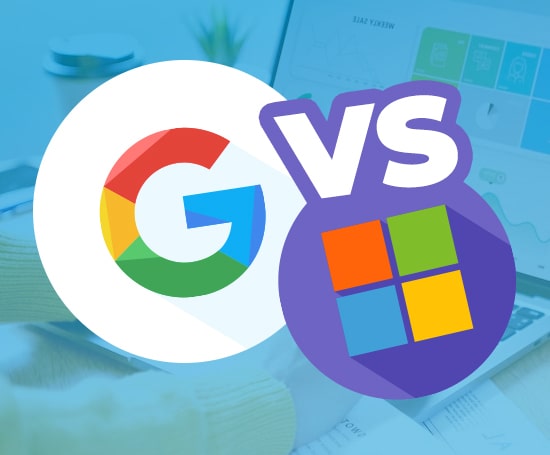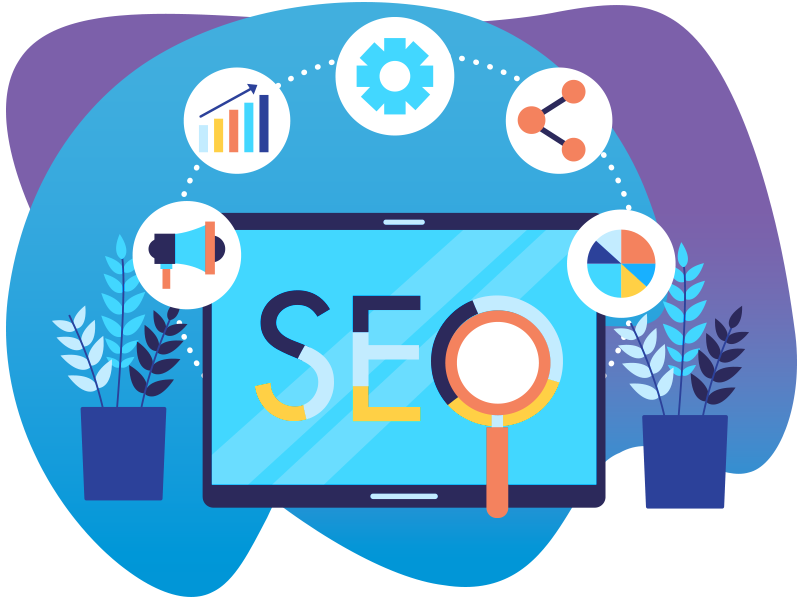Latest From The Sayu Blog



In today's digital world, the way businesses operate, communicate, and connect with their audience has changed significantly. Traditional marketing methods are no longer the only tools companies rely on - much of the interaction between brands and their customers now happens online, whether through websites, social media, or other digital channels.
As the internet continues to grow, the real challenge for businesses isn't just having an online an online presence-it's making sure that presence is easy to find. That's where Search Engine Optimisation, or SEO, comes in. With more and more people turning to search engines to find information, products, and services, appearing in those search results has never been more important.

Search Engine Optimisation (SEO) is a key part of helping websites and online content show up in search engines like Google, Bing, and Yahoo. Put simply, it's about making sure your content can be easily found by the people who are searching for it.
When someone types a question or a set of keywords into a search engine, they're shown a list of results called search engine results pages (SERPs). The aim of SEO is to get your website or content onto those pages - and ideally near the top. The higher your content appears, the more likely it is to be clicked on, which can lead to more visitors, more engagement, and better results overall.


So how do search engines decide what to show first? They use algorithms to scan and rank content based on things like relevance, quality, how fast a site loads, whether it works well on mobile, and how users interact with it. The goal is to give people the most useful and reliable results for what they're searching.
It's also important to remember that SEO is always changing. Search engines regularly update how they rank content to keep up with user behaviour and new trends. Because of this, businesses and marketers need to keep their SEO strategies up to date to stay visible and competitive.

The internet is a crowded place, full of businesses, content, and information all competing for attention. In the middle of all this, organic search plays a crucial role - it helps direct people to relevant content and still drives a large share of website traffic. Here's a closer look at why SEO really matters in today's digital world:

Most people begin their online journeys with a search engine. Whether they're looking for answers, products, services, or something to watch, they usually start by typing in a search. Unlike paid adverts, organic search results make up the bulk of what users click on. So, appearing in those results can make a real difference to how visible your website is and how much traffic it receives.

With so many people now searching on their phones, Local SEO has become more important than ever. Whether someone is looking for a nearby cafe, plumber, or shop, they often search for services in their local area. Optimising for local search helps businesses appear in those results, bringing in more local customers and boosting foot traffic.

Good SEO isn’t just about search engines—it’s about helping people find what they need quickly and easily. That includes fast-loading pages, mobile-friendly design, and well-organised content. A site that’s easy to use is more likely to keep visitors engaged and coming back.

SEO also supports the way your website is structured, making it easier for users to get around. A clear layout and logical content organisation mean visitors are more likely to find what they’re after without getting frustrated—reducing bounce rates and increasing the time they spend on your site.

Ranking well in search results isn’t just about being seen—it helps build trust. People tend to believe that the top results are the most reliable, and that trust often extends to the websites themselves. Being at or near the top can give your business a reputation for being credible and authoritative, which can lead to more return visits and conversions.
SEO is about much more than just improving rankings. It helps connect businesses with the right people, builds trust, and creates a better experience for users—all of which are vital in today’s digital environment.

SEO has many layers, but at its core, it can be broken down into two main areas: On-Page SEO and Off-Page SEO. Each plays an important role in helping your website show up in search results -one focuses on what's happening on your website, while the other is about how the wider internet interacts with it.
On-page SEO covers everything you can control directly on your website. It's the foundation of your site's visibility and how it communicates with both users and search engines. Here are some of the key elements:
Keyword Research and Use: Before you can improve your site's ranking, you need to understand what your audience is searching for. Finding the right keywords helps you shape your content to match those search terms. The key is to use keywords naturally - without overloading your pages.
Quality Content: Using keywords isn't enough on its own. Your content needs to be genuinely helpful, informative, or engaging. Search engines reward content that answers users - questions clearly and in detail.
Meta Tags: These short snippets of text give search engines a quick summary of each pag's content. A well-written meta title and description can make your result stand out in search listings and encourage people to click through.
URL Structure: Simple, tidy URLs are easier for both users and search engines to understand. A good URL should be short, descriptive, and ideally include relevant keywords.
Internal Linking: Linking to other pages within your site helps users explore your content more easily. It also helps search engines understand how your site is structured and which pages are most important.
User Experience and Site Speed: People expect fast, easy-to-use websites. If your site is slow or hard to navigate, visitors are likely to leave quickly - and search engines take that into account. A smooth, mobile-friendly site can make a real difference to your rankings.
Fresh, Updated Content: Keeping your content up to date shows search engines that your site is active and relevant. Adding new blog posts or refreshing older pages can help maintain or improve your visibility.
While on-page SEO is all about what you can control on your own website, off-page SEO is about how your site is seen by others across the web. It focuses on building your reputation, authority, and reach through external signals. Here are some of the main elements:
Backlinks: These are links from other websites that lead to yours. Search engines see quality backlinks as a sign that your content is trustworthy and useful - essentially, a vote of confidence from another site.
Social Media Activity: When your content is shared, liked, or mentioned on social media, it helps increase visibility and signals to search engines that people find your content relevant and engaging.
Brand Mentions: Even without a direct link, mentions of your business or brand name across blogs, forums, and other online platforms show that your brand is being talked about and recognised in your industry.
Guest Blogging: Writing for other reputable sites in your field helps you reach new audiences, showcase your expertise, and potentially earn valuable backlinks. It's also a good way to build relationships within your industry.
In short, while on-page SEO helps you get found, off-page SEO helps you get trusted. Both are important, and working on them together gives your website the best chance of ranking well and standing out online.

In today's hyper-connected digital age, merely having a website isn't enough. To truly succeed and differentiate oneself in the vast online marketplace, businesses need to be discoverable, and that's where SEO shines. The importance of SEO extends beyond just rankings; it has tangible benefits that directly impact a business's bottom line. Here's a deeper dive into the myriad benefits of employing a well-executed SEO strategy:

Millions of searches happen every day on platforms like Google and Bing. By improving your site's SEO, you increase your chances of appearing near the top of those search results. The higher you rank, the more people see your brand - especially when they're actively looking for what you offer.

SEO helps bring the right visitors to your site - people already interested in your products or services. By targeting the right keywords and creating useful, relevant content, you attract an audience that's more likely to take action. Whether that's making a purchase, signing up for a newsletter, or getting in touch, this kind of targeted traffic often leads to better results.

Compared to traditional advertising or paid online ads, SEO is relatively low-cost and delivers long-term value. While ads stop showing once you stop paying, a well-optimised site can continue to attract visitors for months or even years. It's a smart investment that keeps working over time.

The online market is competitive, and SEO gives you an edge. If your website ranks higher than your competitors, you're more likely to get the clicks, the customers, and the business. It's a simple but powerful way to increase your share of the market.

Appearing near the top of search results isn't just good for traffic - it also builds trust. People tend to view high-ranking websites as more credible and reliable. Over time, consistent visibility in search results can help position your business as a trusted name in your industry.
Ultimately, SEO is more than just a marketing tool-it's a crucial part of building a strong online presence. It helps your business get found, builds trust with your audience, and gives you a real edge over the competition. For any business looking to grow online, SEO is a smart, long-term investment.

SEO can be complicated - but you don't have to figure it out on your own. That's where Sayu comes in. We bring years of hands-on experience and a deep understanding of how to get real results. Our approach is tailored to your business, with strategies designed to meet your specific goals - not just generic fixes.
We’ve built a solid reputation through consistent campaign success and positive client feedback. But we don't stop at SEO. As a full-service digital agency, we also offer web development, PPC management, and a wide range of digital marketing services - so everything works together to support your growth.


